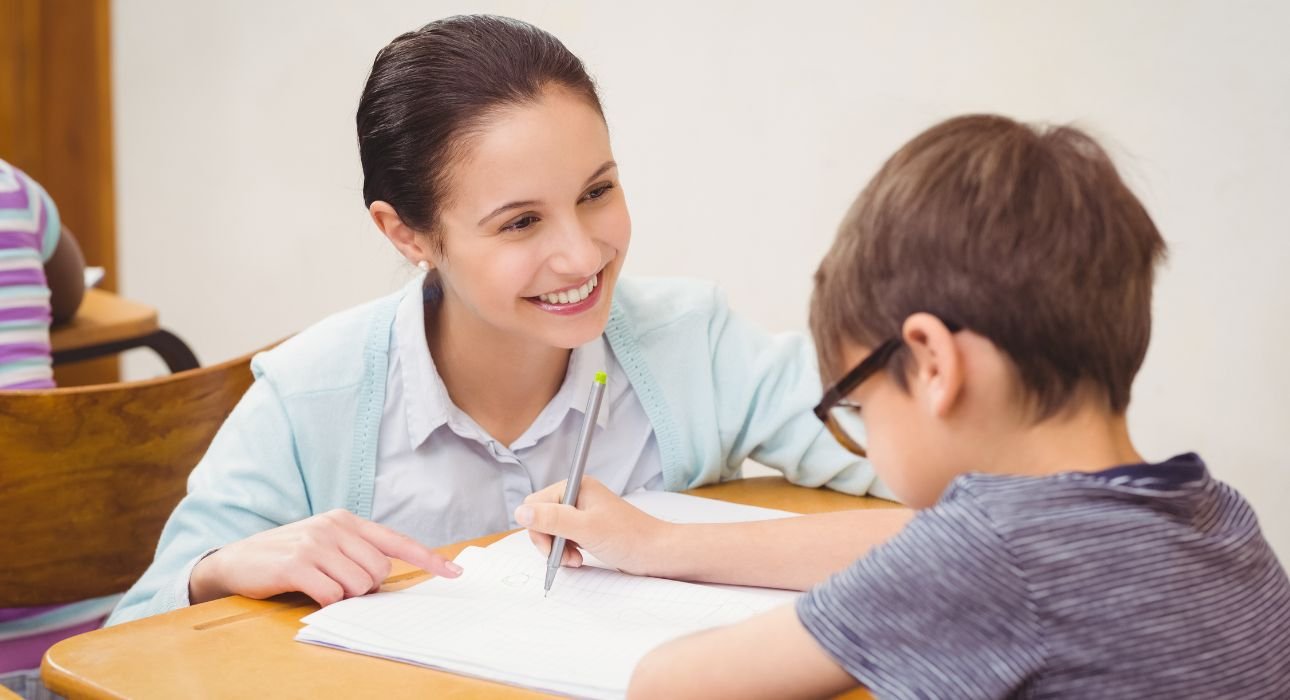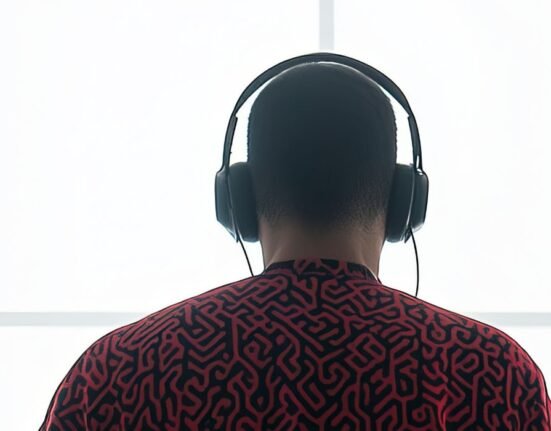It takes a village to raise a child, but only when every villager knows their role.” It is the story of a 9-year-old student named Zara who was facing challenges at her primary school. Her teachers thought she needed therapy sessions with a counsellor because of emotional struggles. After several sessions, the counsellor observed that Zara’s real problem was not psychological but academic. She was diagnosed with a learning disability that required specialised teaching strategies and a special educator who could implement them.
This is not just Zara’s story. Many children face similar confusion when learning disabilities are mistaken for emotional struggles, leaving them untreated. In today’s world, where awareness of mental health has increased, there must be a clear boundary between these two roles. Misunderstanding their responsibilities delays proper help and affects a child’s growth.
Read More: School Counsellor Role in Early Detection of Mental Health Disorders
Who Is a Special Educator?
A special educator provides education and training to students with disabilities through special strategies and methodologies. They use tailored teaching methods and curriculum designed for students with special abilities (Mitchell, 2012). Their role involves bridging the gap between abilities and academic expectations, facilitating collaborative learning environments, and simplifying complex concepts. Children with autism, for instance, are taught in sensory-friendly environments (National Association of Special Education Teachers [NASET], 2006). Beyond teaching, special educators create a friendly atmosphere where students can improve their confidence and learn collaboratively with others.
Read More: Exceptionality: Special Education Insights
Who Is a Counsellor?
A school counsellor, on the other hand, is trained to enhance students’ emotional and mental health. They help students manage stress, academic pressure, and emotional well-being. Counsellors guide students to cope with anxiety, bullying, and self-esteem issues (Johnson, 2022). While special educators focus on academic development, counsellors deal with emotional well-being and personality growth.
They conduct one-on-one therapy sessions to help students manage their emotions and mental struggles (Coşkun, 2010). For example, while a special educator helps a dyslexic child learn to read and write, a counsellor helps that child handle frustration, manage stress, and build self-esteem (Tang, 2021).
Read More: One School Counsellor, Hundreds of Minds – Is It Enough for an Entire School
Why Does the Confusion Exist?
The confusion arises because the roles of a special educator and counsellor overlap. A child struggling mentally may perform poorly academically, and one lagging academically may also experience emotional distress. Parents often feel unsure about whom to approach first. In many schools with limited resources, one person performs both jobs. A special educator may also counsel students, while a counsellor may focus on improving academics (Rubin, 2024). Institutional ambiguity also adds to the confusion, as schools often merge both roles into one. This compromises service quality and increases professionals’ workload.
The Core Differences
Though their goals align, their purpose, training, and scope differ. A special educator’s primary focus is on academic performance, how a student learns. A counsellor’s focus is on emotional health, how a student feels. The educator addresses learning disabilities such as dyslexia or ADHD through specialised teaching methods. The counsellor helps students overcome anxiety, stress, and depression to ensure that emotional struggles don’t hinder learning.
Why Both Roles Are Essential
Modern schools increasingly employ both special educators and counsellors because education is not just about grades’s about holistic development. A child cannot learn effectively if struggling emotionally, and emotional wellness is strengthened by academic confidence.
Special educators focus on learning barriers like dyslexia and ADHD, while counsellors ensure emotional stability and self-esteem (Parallel Learning, n.d.; Lighthouse Therapy, 2025). When both professionals collaborate, students perform better academically and emotionally. Studies show that schools where educators and counsellors work together report lower dropout rates and improved student well-being (Greiner & Hatton, 2023; Tang, 2021).
Read More: New Study Exploring Brain Plasticity in Developmental Dyslexia
Bridging the Gap
Institutions can bridge the gap between these roles through:
- Clear job descriptions defining each professional’s duties.
- Teamwork and collaboration among teachers, educators, and counsellors.
- Training programs for staff and parents about child psychology and learning needs.
- Personalised support, including therapy sessions and individualised learning plans.
Such practices not only support students but also improve school culture by ensuring everyone knows their responsibilities.
Conclusion
In short, the blurred boundaries between the roles of a special educator and a counsellor need to be cleared. Until we clear the difference between these two roles, we cannot understand where the actual problem lies, and only then will we be able to work toward a solution once we identify the problem and root cause. Both roles are equally important in the development of a child.
The way a student learns about courses, concepts, and lessons is what a special educator is responsible for. Additionally, good academic performance is connected to the emotional well-being of a student. A student who does not fit emotionally cannot focus on studies, and vice versa. Therefore, for the healthy and complete development of a student, both aspects deserve equal consideration and focus. When these roles are mistaken, students suffer and face multiple challenges in their academic and emotional growth. Ultimately, children develop numerous psychological issues.
Therefore, to prevent this, schools need to understand the difference between when a student needs specialised instruction about learning and techniques and when they need to take therapy sessions and deal with emotional struggles. They also need to educate the parents and families of such students because their support is equally important in this process. Because education is not just about grades, it’s about the growth of children as overall individuals. It involves both academic and emotional development. We cannot focus on one while compromising the other. Therefore, it is high time for schools to have this confusion cleared and adopt adequate measures to resolve this issue.
References +
Barrow, J., & Mamlin, N. (2008). Collaboration between professional school counsellors and special education teachers. American Counselling Association. https://manifold.counseling.org/read/collaboration-between-professional-school counselors-and-special-education-teachers
Coşkun, Y. D. (2010). School counsellors’ views about the individualised educational programme. Procedia – Social and Behavioural Sciences, 9, 1844–1848. https://doi.org/10.1016/j.sbspro.2010.12.413
Greiner, A., & Hatton, C. (2023). The school counsellor’s role in serving students with disabilities. School Counsellor Magazine. https://www.schoolcounselor.org/Magazines/May-June-2023/The-School-Counselor-s Role-in-Serving-Students-wi
Johnson, K. F. (2022). School counsellors addressing education, health, and trauma disparities. Journal of Health Service Psychology, 48(2), 145–152. https://pmc.ncbi.nlm.nih.gov/articles/PMC9465282
Lighthouse Therapy. (2025, March 23). Special education professionals: Who they are and what they do. https://lighthouse-therapy.com/special-education-professionals-who-they are-and-what-they-do
Mitchell, B. B. (2012). Examining the role of the special educator in response to the intervention model. Learning Disabilities: A Contemporary Journal, 10(2), 53–74. https://files.eric.ed.gov/fulltext/EJ998225.pdf
National Association of Special Education Teachers (NASET). (2006). Roles and responsibilities of the special education teacher. https://media.naset.com/fileadmin/user_upload/Pro_Development/Roles_Responsibilitie s_SPED_Teacher.pdf
Parallel Learning. (n.d.). Roles and responsibilities of special education professionals. https://www.parallellearning.com/post/roles-responsibilities-of-special-education professionals
Rubin, O. (2024). Two approaches to school counselling as a profession: From boundaries to core. Professions and Professionalism, 14(1). https://doi.org/10.7577/pp.5448
Tang, K. S. (2021). School counsellors and special education teachers’ involvement in leadership activities at their school sites. Journal of Leadership, Equity and Research, 7(3), 22–34. https://files.eric.ed.gov/fulltext/EJ1322456.pdf













Leave feedback about this